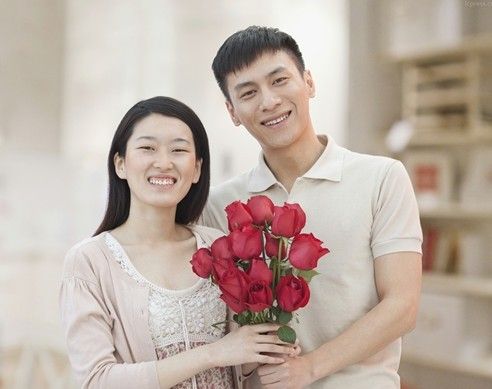Recently updated on November 28th, 2017 at 10:50 am
“physiognomic pairing” is my translation of “夫妻相”, which it is not good enough. It seems that there is no equivalent phrase or concept in English to explain Chinese”相”or “相学”. “相”in Chinese is something mysterious in ancient China, while it is considered as superstitious in modern China. Besides, “相” and “像”which means alike, share the same pronunciation in Chinese. In this respect, “夫妻相” is a pun. The meaning of these three characters just mean
“They match well.”, “A perfect pair!”, “A bread-and-butter match!”, “They look compatible.” But I can not find an equivalent term in English.
I know there are a lot of expats here with profound knowledge in Chinese. Can anyone help?
— Helena Wen

Lily Baonhi Luong 梁寶兒: Oh, this is a challenging one Helena! perfect match (laughing) that sound more like 天生一對, okay, I don’t think I am very helpful here (laughing)
Maclean Kirkwood: Helena,
As often is the case with translation between the two languages, there really is not a definitive equivalent to 夫妻相 in English. As you mentioned, we do not have the cultural context here to phrase the exact same thing, and because of this any attempt to directly translate would be awkward. There are, however, a multitude of different ways to express the concept (three of which you have already organically stumbled onto yourself). You could just call it a perfect pairing or a synonym to this phrase, perhaps the two are a “suitable match” or a “natural fit”. You could also attempt to use an idiom by saying something like the two pieces of the pairing are a “match made in heaven” or that they “go hand in hand”. Lastly you could choose to use figurative language to describe how the two fit together. A simile such as “the two go together like husband and wife” would work pretty well.
Generally, the context in which you are trying to use the phrase 夫妻相 should help you decide on a suitable translation.
Hopefully this helps some.
Helena Wen: Thank you Maclean! It’s very helpful. But still “相” this word lost its meaning in translation. It lost its pun and also lost its philosophy in Chinese.
Jie Zhang: Per my understanding, this “Fuqi Xiang” can be translated as “Couple’s Faces Matching”, cause it is mainly the ‘2 faces’ stressed by the original meaning.
Maclean Kirkwood: Jie is correct. The problem with translating in this way, though, is that the phrase “couple’s faces matching” means literally nothing to an English speaker. If you were going to translate it in such a way you would need to first claim that the situation is similar to one in Chinese which is loosely translated as “couples faces matching” before putting it in terms that an English speaker would understand i.e. “perfect match” or any of the things I said in my original response.
Lily Baonhi Luong 梁寶兒: Imagine trying to translate “wong fu xiang” which means when wife has facial features that shows she will bring good luck, good fortune, and good news to the husband (laughing). Cheers.
Leave a Reply